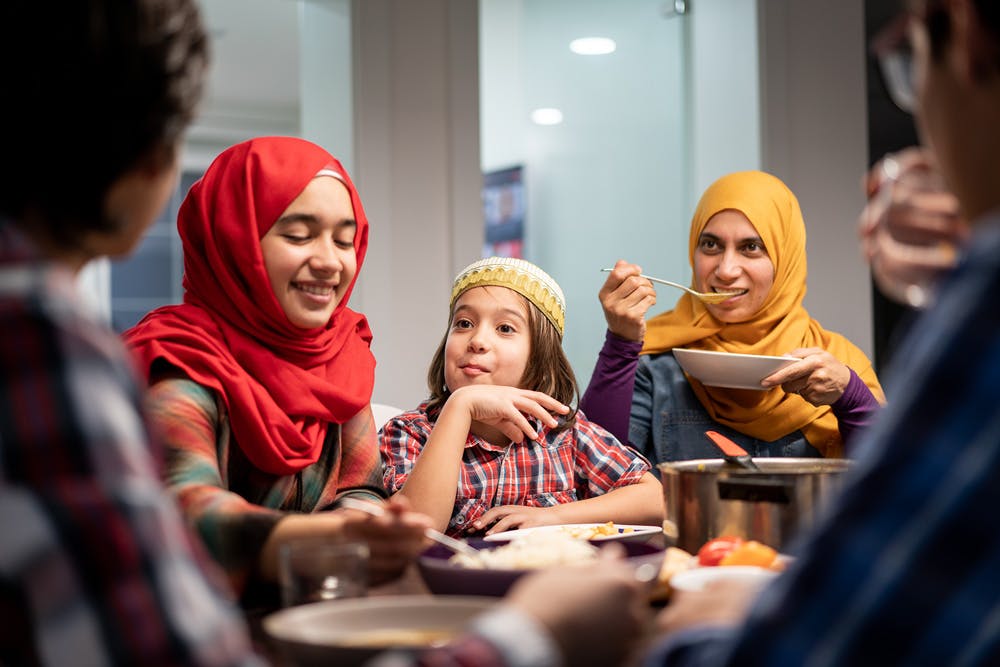What you need to
know about Eid:
Eid al-Fitr and Eid al-Adha are the two largest holidays for Muslims. Join in on the celebration. Eid Mubarak!
A tale of two Eids
The Islamic calendar has two major holidays each year. The first is Eid al-Fitr, which marks the end of Ramadan and celebrates an entire month of fasting. The second is Eid al-Adha, the festival of the sacrifice that occurs during the culmination of the Hajj pilgrimage season. It takes place two lunar months after Ramadan. Each Eid celebrates a spiritual renewal after a period of sacrifice and devotion.
Eid al-Adha
This Eid occurs during the Hajj season and commemorates the sacrifices and devotion of Abraham (peace be upon him) and his family. Eid al-Adha coincides with the Hajj pilgrimage, where pilgrims from around the world follow the rituals of Abraham, like circling the Ka’bah (the Grand Mosque in Makkah) which he originally built.
Eid al-Adha also reminds us of the devotion of Abraham and his son Ishmael as they surrendered themselves to God’s Will and, as a result, were beautifully rewarded.
(Abraham) said, ‘My son, I have had a dream that I must sacrifice you. What do you think of this?’
He replied, ‘Father, fulfill whatever you are commanded to do and you will find me patient, by the will of God.’
So when they both submitted…We called out to him, saying, ‘O Abraham! You have indeed fulfilled the vision; surely thus do We reward those who do good.’
Most surely this was a manifest trial..surely he was one of Our believing servants.Qur’an, 37:102-111
On this day, it’s customary for those with wealth to sacrifice a sheep or other animal, as Abraham did in place of his son, and donate the meat to those in need.
After that, those at home celebrate similarly to Eid al-Fitr—with morning prayers, gifts, food, and festivities—while those at Hajj continue on with the rites of pilgrimage.
Eid al-Fitr
Eid al-Fitr occurs at the end of Ramadan. After an entire month of fasting and extra prayer, Muslims are sad to bid Ramadan and its spiritual atmosphere good-bye, but also excited to celebrate their efforts with a holiday.
The festivities begin early on Eid day with the traditional takbeerat and communal prayers. Celebrants show up in their loveliest clothing to pray together, embrace all of their friends, and wish each other “Eid mubarak.” After Eid prayer, specific ways of celebrating vary across a plethora of Muslim cultures, but whether it’s knafeh or donuts, you can be sure that there will be lots of feasting on delicious foods, exchanging gifts, and quality time spent together with family and community.
What’s the difference?
Eid al-Fitr
The one where people fast from before sunrise to sunset for 30ish days.
Happens at the end of Ramadan
Commemorates a month of fasting
Celebrated on the first day of Shawwal, the 10th month of the Islamic calendar
Lots of good food
Lots of fun and festivities
Eid al-Adha
The one where people make Hajj and sacrifice a cow or sheep to feed their community and those in need.
Happens during the Hajj season
Commemorates the piety of Abraham
Celebrated on the 10th day of Dhul Hijjah, the 12th month of the Islamic calendar
Lots of good food
Lots of fun and festivities
Frequently asked questions
When is Eid?
Is that why my work colleagues don’t always know which days to take off of work?
Do schools give students the day off on Eid?
How long does Eid last? Is it just one day?
So what are some traditions during Eid? How is it celebrated?
Can I join in the celebrations and visit my Muslim friends on Eid?
I can’t visit but I’d like to wish my friends a happy Eid. Is there a specific way to say that?
I’ve heard that Eid is Muhammad’s birthday. Is that correct?
Gotcha. So what’s the purpose of Eid? What exactly is being celebrated?

